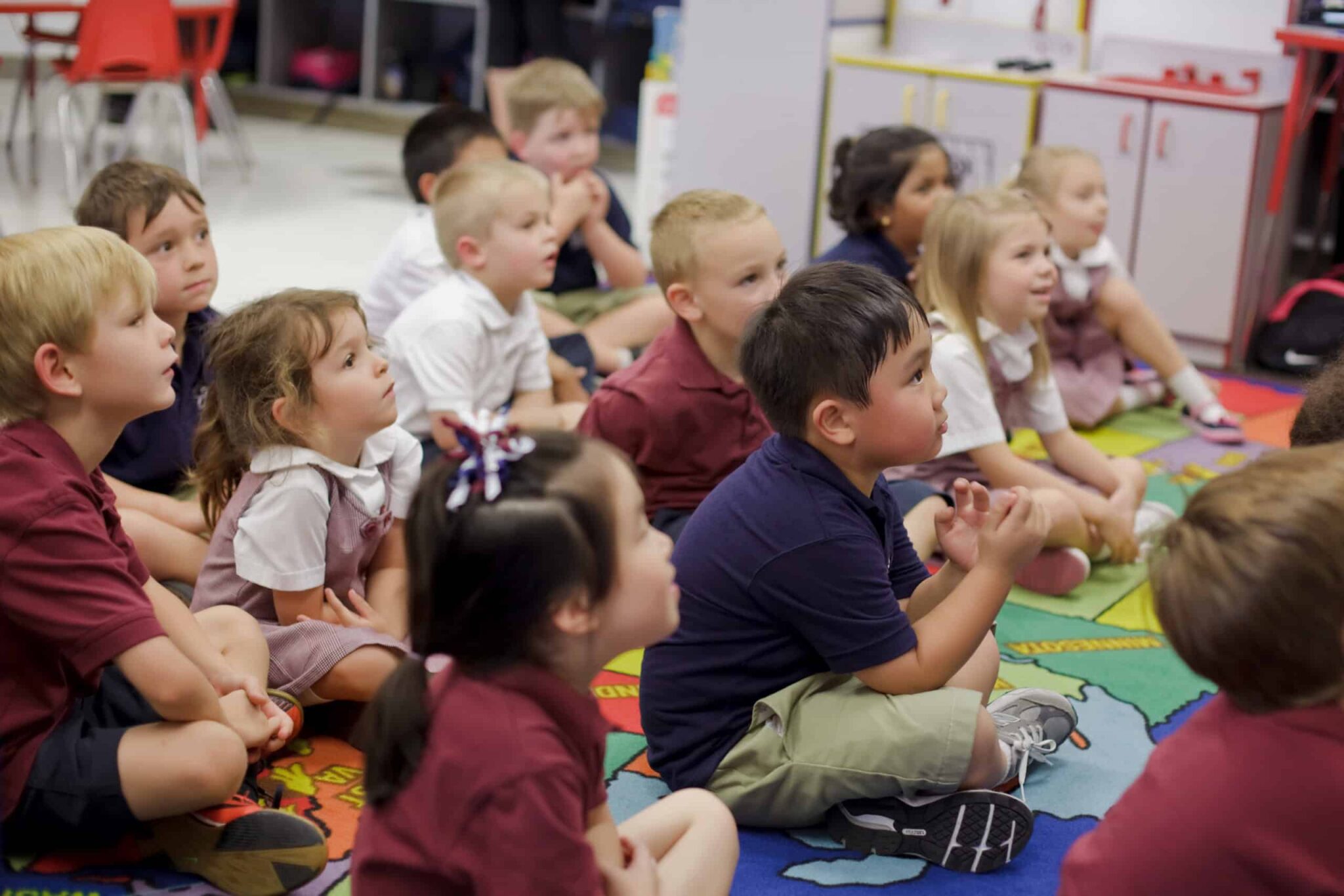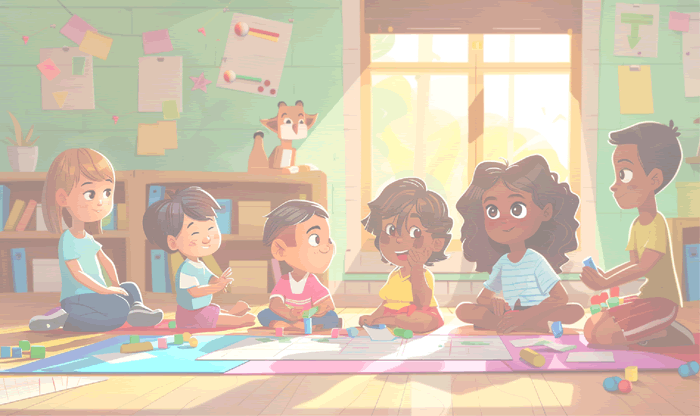How Kindergarten activities nurture early learning and social skills
Everything About Elementary School: Crucial Facts and Improving Experiences for Young Learners
Elementary school plays a pivotal role in shaping young learners' futures. It includes important scholastic topics and nurtures social skills via structured communications. Additionally, extracurricular tasks provide chances for creativity and team effort. Adult participation even more boosts this structure, sustaining youngsters in their scholastic journeys. As these elements link, they create an extensive educational experience. However, what certain strategies can parents and teachers utilize to maximize this advancement?

Recognizing the Elementary School Educational Program
As students start their grade college trip, they come across a curriculum made to develop fundamental abilities and understanding across numerous subjects. This curriculum typically incorporates core locations such as maths, language arts, science, and social studies. Each topic is structured to grow vital thinking, creativity, and analytical capabilities, vital for future scholastic success.
Language arts focus on analysis, composing, and interaction skills, promoting trainees' capacity to reveal themselves clearly. Math presents standard principles, including enhancement, subtraction, and later, multiplication and division, preparing for more complicated analytic. Science motivates questions and expedition, firing up inquisitiveness concerning the environment, while social studies instills an understanding of area and cultural variety.
In enhancement to core topics, the educational program typically includes arts and physical education and learning, offering a versatile instructional experience that promotes both physical and intellectual growth. As a result, elementary school offers as a crucial platform for lifelong understanding.

The Structure of Quality School Education
While quality college education varies by area and establishment, it normally adheres to an organized framework that advertises dynamic knowing. Typically, grade institution includes a variety of qualities, usually from preschool via sixth or fifth grade, depending on the instructional system. Each grade degree represents particular developing turning points, with educational program designed to build upon anticipation.
Courses are generally organized right into core subjects, consisting of maths, language arts, science, and social researches, guaranteeing that pupils obtain a versatile education and learning. Guideline usually combines straight training with hands-on activities, promoting involvement and important thinking.

Analysis approaches vary but normally consist of jobs, quizzes, and tests to examine pupil understanding. In addition, instructors commonly collaborate to develop interdisciplinary devices, boosting the discovering experience. Generally, the structure of elementary school education and learning aims to grow fundamental abilities, prepare students for future academic difficulties, and promote a love for discovering that expands past the classroom.
Social Skills Growth in Early Learners
Elementary school education not just concentrates on scholastic abilities yet likewise plays a considerable duty in the advancement of social skills among early students. Throughout these formative years, youngsters involve in various tasks that urge communication, cooperation, and communication with peers. Group jobs and participating learning settings supply possibilities for youngsters to practice sharing, negotiating, and settling disputes.
Structured play promotes necessary skills like compassion and understanding, as children discover to respond and recognize to the sensations of others. With guided social communications, teachers assist pupils create critical paying attention and conversational skills. As children navigate friendships and team characteristics, they acquire self-confidence in their social abilities.
The Role of After-school Activities
After-school activities play a considerable function in enhancing the instructional experience of elementary school students by giving avenues for individual development past the classroom. These activities permit students to check out abilities and passions, promoting imagination and self-expression. Participation in sports, music, art, and clubs grows teamwork, leadership skills, and a sense of belonging.
Engaging in such activities advertises physical wellness and wellness, encouraging pupils to keep an energetic lifestyle. Extracurricular programs also work as a platform for trainees to develop friendships and create social skills, which are vital for their overall development
As trainees browse their rate of interests beyond academics, they obtain valuable experiences that add to their self-esteem and resilience. Eventually, these activities play an important function in shaping all-around people, preparing them for future difficulties both in and out of the class.
Sustaining Learning With Adult Involvement
Parental participation significantly improves the academic journey of elementary school trainees, as it promotes an encouraging setting that reinforces understanding. Involved parents add to their kids's scholastic success by attending institution events, helping with research, and maintaining open communication with instructors. Grade School. This participation not only improves pupils' inspiration but you can look here likewise grows a feeling of belonging and self-confidence
Research study shows that kids whose moms and dads are proactively involved tend to have greater qualities, much better participation, and enhanced behavior in college. Additionally, adult interaction encourages the development of important life skills, such as time monitoring and responsibility.
Institutions can facilitate this participation by organizing workshops, giving sources, and encouraging routine feedback. By creating collaborations between parents and teachers, elementary school can ensure a detailed strategy to pupil development. Ultimately, adult involvement acts as a foundation for cultivating a favorable academic experience, benefiting both my blog pupils and the college area as a whole.
Regularly Asked Inquiries
What Are the Common Grade Institution Hours for Students?
Regular elementary school hours for trainees generally range from 8:00 AM to 3:00 PM, differing by area. Many institutions integrate a lunch break and recess, guaranteeing students have time to reenergize throughout the day.
Exactly How Do Quality Schools Address Diverse Knowing Demands?
Quality schools resolve varied finding out requirements through separated direction, customized lesson strategies, and assistance solutions, ensuring all students get ideal resources. Educators team up with experts to produce inclusive environments that promote private development and interaction.
What Is the Function of Technology in Quality College Education?
Technology in grade college education and learning improves discovering through interactive tools, customized finding out experiences, and access to substantial resources. It fosters partnership amongst teachers and trainees, preparing kids for a technology-driven future while supporting diverse academic needs.
Just How Can Parents Aid With Homework Properly?
Parents can assist with research effectively by developing an organized atmosphere, encouraging self-reliance, offering resources, and offering assistance without straight giving solutions. Interaction with instructors additionally boosts understanding of expectations and advertises academic success.
What Are Common Obstacles Faced by Grade School Pupils?
Usual obstacles faced by quality college pupils include problem with time monitoring, comprehending intricate principles, maintaining focus during lessons, steering social dynamics, and stabilizing scholastic duties with after-school activities, all of which can affect their total efficiency.
As pupils begin their quality college trip, they run into an educational program designed to you can find out more develop fundamental abilities and understanding across various topics. Usually, grade college includes a range of qualities, commonly from preschool through sixth or 5th quality, depending on the educational system. Extracurricular activities play a significant role in enhancing the educational experience of grade school pupils by giving opportunities for personal development beyond the classroom. Adult participation significantly boosts the educational journey of quality school pupils, as it promotes a supportive setting that enhances understanding. By producing partnerships in between parents and instructors, grade colleges can ensure a thorough technique to pupil growth.